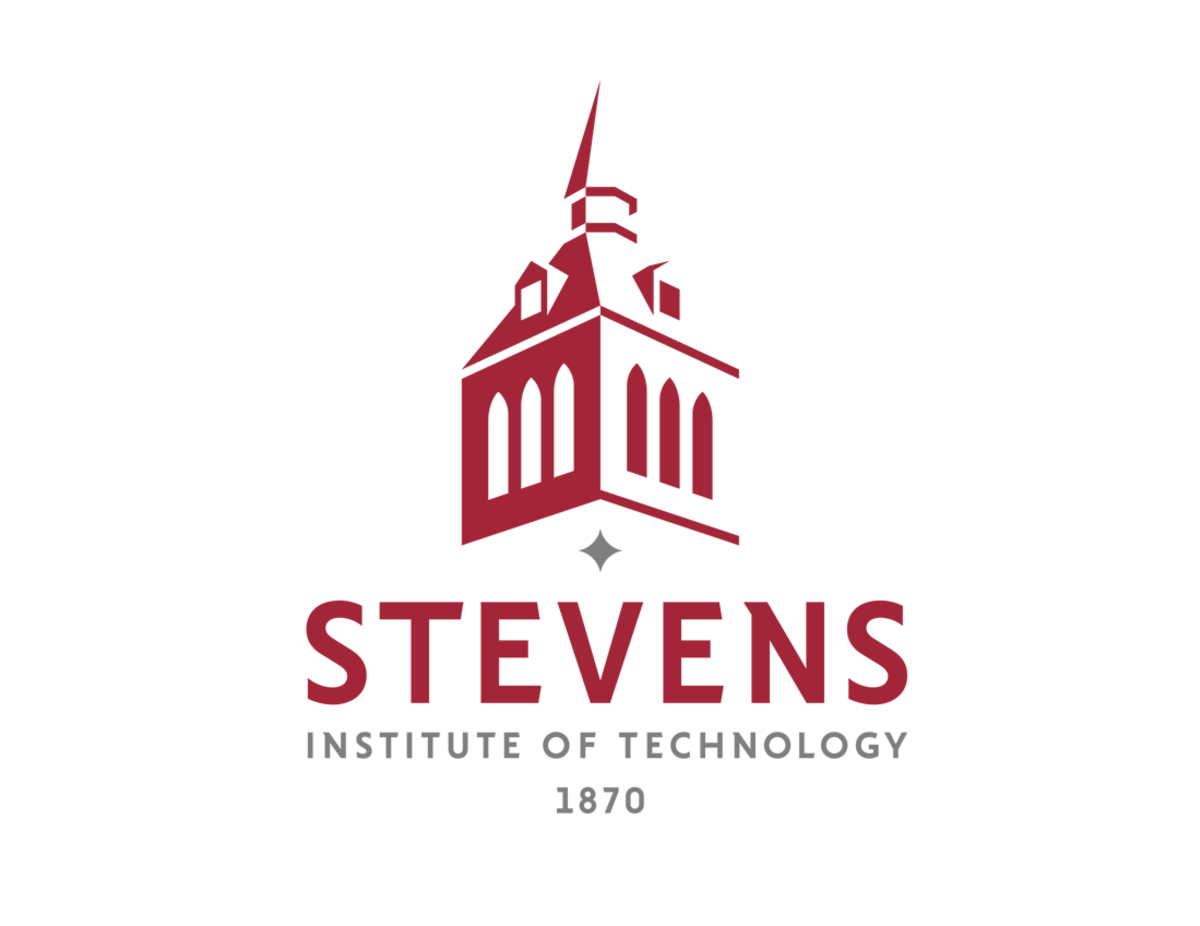
Bachelor's in Technology and Master's in Business Intelligence & Analytics - Accelerated Master's Program
Program Details
Degree
Master of ScienceSchool
School of BusinessDepartment
School of Business Graduate ProgramAvailable
On campusStevens School of Business and SKVM's NMIMS Deemed-to-be University offer a highly-coordinated Business Intelligence & Analytics Accelerated Master's Program.
In the first year, you will enroll full-time at NMIMS (12 credits). Then, you will enroll full-time at the Stevens School of Business, taking courses within the Business Intelligence & Analytics program (24 credits). After completing the program (5 years), you will receive a Bachelor of Technology degree from NMIMS and an M.S. in Business Intelligence & Analytics from Stevens.
Stevens Institute of Technology
Stevens Institute of Technology is a premier, private research university in Hoboken, New Jersey, overlooking the Manhattan skyline. Since its founding in 1870, technological innovation and entrepreneurship have been the hallmarks of Stevens’ education and research. Within the university’s three schools, Stevens prepares its more than 8,000 undergraduate and graduate students for an increasingly complex and technology-centric world. Our exceptional students collaborate closely with world-class faculty in an interdisciplinary, student-centric, entrepreneurial environment, readying them to fuel the innovation economy. Academic and research programs spanning finance, computing, engineering and the arts expand the frontiers of science and leverage technology to confront the most challenging problems of our time. Stevens is consistently ranked among the nation’s leaders in ROI and career services and is in the top 1% nationally of colleges with the highest-paid graduates.
The Business Intelligence and Analytics program is scheduled to sunset in Fall 2025. Taking its place is the new Business Analytics and Artificial Intelligence program, the next evolution in the business analytics curriculum, blending business strategy, analytics, and artificial intelligence. |
Program Highlights
Master Data-Driven Quantitative Skills: The Business Intelligence and Analytics curriculum emphasizes quantitative skills and provides students with a robust understanding of statistical analysis and data modeling, essential for extracting insights from complex datasets. Mastery of these concepts equips graduates to analyze data effectively and adapt to evolving business analytics tools and technologies.
Industry Relationships Spur Career Growth: Close ties with industry professionals offer students opportunities to understand real-world challenges, best practices and build networks for career advancement. Collaboration with industry partners on projects and internships exposes students to practical applications of data analytics and enhances their understanding of how data drives business innovation.
Hands-On, Real-World Project Experience: Projects simulating actual industry scenarios prepare students for the demands of the workforce by honing critical thinking, problem-solving and collaboration skills. Students learn to effectively communicate their findings by collecting, analyzing and interpreting data.
Specialization Opportunities to Tailor Your Experience: Students can choose between data analytics, data science and AI, or big data tracks to ensure their education aligns with their career goals. Each specialization offers unique insights and skills highly valued in the job market, whether it's analyzing data for business decisions, leveraging advanced algorithms for predictive modeling or efficiently managing large volumes of data.
An Enhanced Student Experience: Business Intelligence and Analytics students have the chance to supplement their experience by participating in events that bridge the gap between academia and industry, technical boot camps in essential tools such as Python, R and Tableau, student clubs and digital webinars with data analysts and scientists from across sectors. Stevens students also build digital portfolios of real-world projects and utilize School of Business-specific placement services such as resume development, interviewing skills and networking events to help them secure employment at top companies in the industry.
Invaluable Networking Opportunities: Students can participate in the Industry Capstone program, which connects them with companies and offers networking opportunities to advance their careers.
GMAT/GRE test scores are optional for all master’s programs. Applicants who think that their test scores reflect their potential for success in graduate school may submit scores for consideration.
Big Data. Big Deal
Data science has become the ultimate driver of competitive advantage. But few leaders understand the potential of Business Intelligence and Analytics (BI&A), deep learning, and predictive analytics as engines of the enterprise.
The Business Intelligence and Analytics master's provides a blend of analytical and professional skills to help you become the kind of manager who challenges assumptions and uses data to make evidence-based decisions. At Stevens, you'll master new tools that will help you refine products, services, and strategies while setting the pace for your company in markets undergoing constant, technology-driven change.
The Business Intelligence and Analytics curriculum covers the concepts at the forefront of the data revolution — machine learning, language processing, web mining, optimization, and risk. Classes explore key business concepts while going beyond basics in R, SAS, Hadoop, Python and Spark. The program culminates in a capstone experience in which you'll work on a project, using real data, under the guidance of an industry mentor.
Business Intelligence and Analytics Capstone Experience
No graduate business education is complete without an opportunity to apply what you've learned on a project of consequence. At Stevens, that takes many forms — a consulting assignment with an industry partner, a research project that addresses an industry need, even the chance to nurture your own entrepreneurial venture — and is customized for you, your education and your career aspirations.
The master's program trains students to understand both the business implications of Big Data and the technology that makes that data useful. In doing so, it leans heavily on the high-tech infrastructure at Stevens, which gives students direct exposure to the kind of challenges they will engage in the workplace. Students will cultivate the skills to collect, analyze and interpret data in strategic data planning and management; databases and data warehousing; data mining and machine learning; network analysis and social media; and risk, modeling and optimization, and will learn to apply those skills to business problems in order to form actionable strategy.
Board of Advisors
The Business Intelligence & Analytics’ industry-ready curriculum is guided by an Advisory Board of distinguished leaders across multiple disciple areas that ensure students in the program receive the skills and opportunities needed to be successful after graduation.
Core Courses
MIS 637 Data Analytics and Machine Learning
This course will focus on Data Mining & Knowledge Discovery Algorithms and their applications in solving real world business and operation problems. We concentrate on demonstrating how discovering the hidden knowledge in corporate databases will help managers to make near-real time intelligent business and operation decisions. The course will begin with an introduction to Data Mining and Knowledge Discovery in Databases. Methodological and practical aspects of knowledge discovery algorithms including: Data Preprocessing, k-Nearest Neighborhood algorithm, Machine Learning and Decision Trees, Artificial Neural Networks, Clustering, and Algorithm Evaluation Tech
BIA 650 Optimization and Process Analytics
This course covers basic concepts in optimization and heuristic search with an emphasis on process improvement and optimization. This course emphasizes the application of mathematical optimization models over the underlying mathematics of their algorithms. While the skills developed in this course can be applied to a very broad range of business problems, the practice examples and student exercises will focus on the following areas: healthcare, logistics and supply chain optimization, capital budgeting, asset management, portfolio analysis. Most of the student exercises will involve the use of Microsoft Excel’s "Solver" add-on package for mathematical optimization.
BIA 654 Experimental Design II
This course covers fundamental concepts of experimentation including hypothesis development, operational definitions, reliability and validity, and measurement and variables, as well as design methods, such as sampling, randomization, and counterbalancing. The course also introduces the analysis associated with different designs as designing solid experiments involves thinking about how to analyze the obtained data. At the end of the course, students present a project, in which they come up with a research question, design an experiment, collect and analyze the data, and try to answer the question. MGT 620 or equivalent is required; basic knowledge of statistics is expected.
BIA 658 Social Network Analytics and Visualization
This course introduces concepts and theories of social networks as well as techniques to conduct marketing research from a network perspective. Network concepts covered include graph-theoretic fundamentals, centrality, cohesion, affiliations, equivalence, and roles. Network theories covered include embeddedness, social capital, homophily, and models of network growth. Design issues will also be covered, including data sampling and hypothesis testing. Another focus of this course is on marketing applications of social network analysis, in particular the use of knowledge about network properties and behavior, such as hubs and paths, the robustness of the network, and information cascades, to better broadcast products and search targets. Application areas include customer profiling, community detection, targeting, sentiment analysis, and development of recommendation systems. Knowledge and skills learned in these required courses (e.g., R, python, machine learning) are applied to social network analysis.
BIA 660 Web Mining
In this course, students will learn through hands-on experience how to extract data from the web and analyze web-scale data using distributed computing. Students will learn different analysis methods that are widely used across the range of internet companies, from start-ups to online giants like Amazon or Google. At the end of the course, students will apply these methods to answer real scientific question or to create a useful web application.
BIA 686 Practicum in Analytics
Business intelligence and analytics is key to enabling successful competition in today's world of "big data". This course focuses on helping students to not only understand how best to leverage business intelligence and analytics to become more effective decision makers, making smarter decisions and generating better results for their organizations. Students have an opportunity to apply the concepts, principles, methods associated with four areas of analytics (texts, descriptive, predictive, and prescriptive) to real problems in an application domain associated with their area of interest.
Elective Courses (Choose Two)
BIA 656 Advanced Data Analytics and Machine Learning
The significant amount of corporate information available requires a systematic and analytical approach to select the most important information and anticipate major events. Statistical learning algorithms facilitate this process understanding, modeling and forecasting the behavior of major corporate variables. This course introduces time series and statistical and graphical models used for inference and prediction. The emphasis of the course is in the learning capability of the algorithms and their application to finance, direct marketing, operations, and biomedicine. Students should have a basic knowledge of probability theory, and linear algebra.
BIA 662 Augmented Intelligence and Generative AI
This course explores the area of cognitive computing and its implications for todays world of big data analytics and evidence-based decision making. Topics covered as part of this seminar include: cognitive computing design principles, natural language processing, knowledge representation, advanced analytics, as well as IBM's Watson DeepQA and Google's TensorFlow deep learning architectures. Students will have an opportunity to build cognitive applications, as well as explore how knowledge-based artificial intelligence and deep learning are impacting the field of data science.
BIA 670 Risk Management and Simulation
Theoretical and practical aspects of risk assessment and management will be covered. Major topics include: Importance of innovation and technological changes in current competitive environment, risk and uncertainty, decision trees, binomial methods and derivation of Black-Scholes option pricing formula, extension of option methodology to non-financial (real) options, VAR (value at risk), a framework of risk assessment, and several real-world case studies. The course is designed for all students in the School of Technology Management.
BIA 672 Marketing Analytics
In this course, students will learn about marketing analytics techniques such as segmentation, positioning, and forecasting, which form the cornerstone of marketing strategy in the industry. Students will work on cases and data from real companies, analyze the data, and learn to present their conclusions and make strategic recommendations.
BIA 674 Supply Chain Analytics
Supply chain analytics is one of the fastest growing business intelligence application areas. Important element in Supply Chain Management is to have timely access to trends and metrics across key performance indicators, while recent advances in information and communication technologies have contributed to the rapid increase of data-driven decision making. The topics covered will be divided into strategic and supply chain design and operations, including -among others- supplier analytics, capacity planning, demand-supply matching, sales and operations planning, location analysis and network management, inventory management and sourcing. The primary goal of the course is to familiarize the students with tactical and strategic issues surrounding the design and operation of supply chains, to develop supply chain analytical skills for solving real life problems, and to teach students a wide range of methods and tools -in the areas of predictive, descriptive and prescriptive analytics- to efficiently manage demand and supply networks.
BIA 676 Data Stream Analytics
In recent years, the progress in sensor technologies, RFID (Radio Frequency Identification) tags, smart phones and other smart devices has made it possible to measure, record, and report large streams of transactional data in real time. Such data sets, which continuously and rapidly grow over time, are referred to as Big Data Streams. Analysis of streaming data poses a number of unique challenges which are not easily solved through direct applications of well-known data mining methods and algorithms developed for traditional static data. This course will serve as a first course on the emerging field of "Data Streams Analytics". It will provide an introduction to IoT, sensors & devices, the architecture and environment in which these devices generate data streams, the data quality & data cleaning, data acquisition, and emerging methodologies and algorithms for knowledge discovery from data streams. Topics include: synopsis & sampling techniques, sliding windows, computing the entropy in streams, data streams correlations, change detection, outliers & anomaly detection.
BIA 678 Big Data Technologies
The field of Big Data is emerging as one of the transformative business processes of recent times. It utilizes classic techniques from business intelligence & analysis (BI&A), along with a new tools and processes to deal with the volume, velocity, and variety associate with big data. As they enter the workforce, a significant percentage of BIA students will be directly involved with big data as technologists, managers, or users. This course will build on their understanding of the basic concepts of BI&A to provide them with the background to succeed in the evolving data-centric world, not only from the point of view of the technologies required, but also in terms of management, governance, and organization. Students taking the course will be expected to have some background in areas such as multivariate statistics, data mining, data management, and programming.
SVKM's NMIMS Deemed-to-be University
Since 1981, NMIMS has today emerged as a globally reputed university. Always socially conscious, the Shri Vile Parle Kelavani Mandal (SVKM) made the decision to cater to the rising demand of management institutes in India which led to the birth of the Narsee Monjee Institute of Management Studies (NMIMS). NMIMS currently has 17 specialized schools with more than 17,000 students and about 750 full-time faculty members, 10 faculty members with Fulbright and Humboldt International Scholarships.
Courses
Financial Accounting
Advanced Database Management
Data Warehousing and Mining
Data Mining and Analytics





